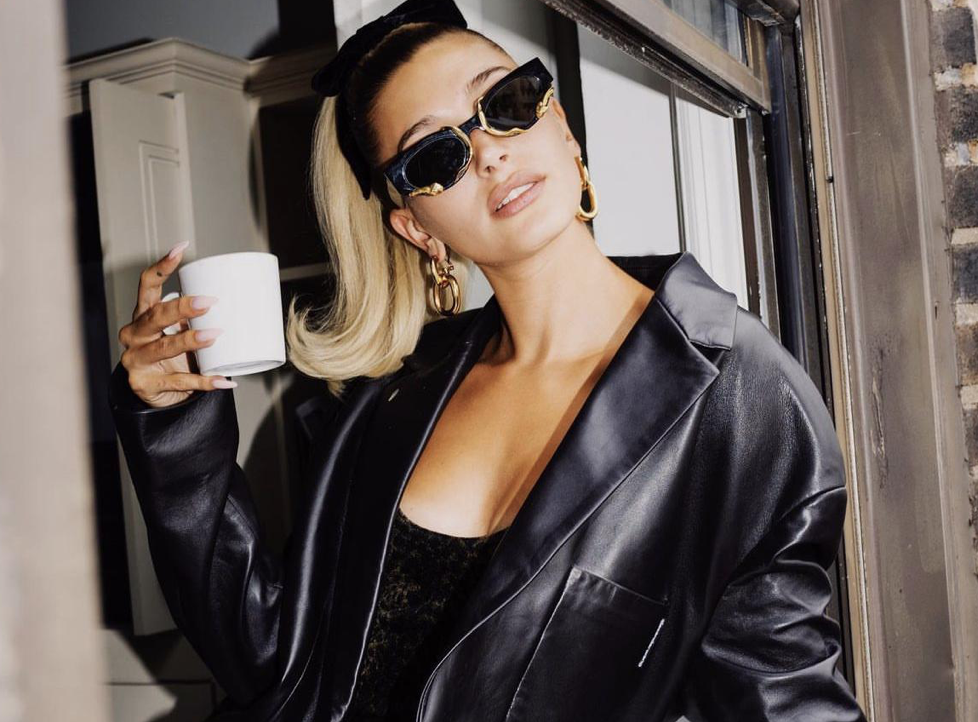Hailey Bieber: Cancel Culture’s Latest Victim
Image Courtesy: Strike Magazine Tallahassee
If there's one thing you can count on during major celebrity drama, it's the media, with its users dredging up old clips and photos and calling it "evidence.” This past week social media outlets, Tiktok, Twitter, and Instagram have been obsessed with the latest Hailey Bieber versus Selena Gomez drama after Kylie Jenner and Hailey seemingly shaded Gomez on their Instagram stories. Since then, I've seen, as I'm sure you have too, hundreds of videos questioning the timeline of both women's relationship with Justin Bieber and years-old interview clips and screenshots detailing Hailey's "obsession" with Gomez.
Image Courtesy: Hailey Bieber via Instagram (@haileybieber)
After day three and seeing yet another Tiktoker's theory video about Kendall Jenner taking Selena and Gigi Hadid to Dubai, apparently to allow Hailey to spend the New Year with Justin, I wondered, has fan culture become too toxic?
We've repeatedly seen the fan culture’s unnecessary hostility towards female celebrities and canceling speed. From Meghan Markle to Amy Winehouse and Britney Spears, Hailey Bieber is just its most recent victim, whether we want to recognize it or not. As Hailey is repeatedly diminished and "called out" by fans on social media as crazy, obsessive, and even Selena Gomez's stalker, we can’t deny the notion that stan culture has taken canceling too far through its toxic mindset. By looking at the content of videos being posted on Tiktok by stan accounts claiming to be further "evidence" of Hailey's obsessive fan and mean girl behavior, it's hard to ignore the fact that social media users are almost encouraged to participate in hating the most recent celebrity that has become just another victim of a fandom’s dislike.
Image Courtesy: Hailey Bieber via Instagram (@haileybieber)
While in no way am I saying that all celebrities that have been victims to cancel culture happened for no good reason, I do believe that fandoms have changed the idea of cancel culture from being “this celebrity did something terrible, so he or she should no longer be idolized” to one that is infinitely more toxic being “this celebrity did something that I personally don’t agree with so everyone should hate them as well.”
Cateau Bunny (@cocainecross) on Twitter wrote, "I don't care about Hailey Bieber, but eventually we need to talk about Tiktok's obsession with ganging up on women. They [fandoms] always find someone to collectively attack and humiliate to an extreme level. I was only on the app for ten minutes, and every other video was about Hailey."
Image Courtesy: Hailey Bieber via Instagram (@haileybieber)
Despite there being seemingly legitimate instances of Hailey mimicking being brought into question, such as undeniable direct tweets at Selena Gomez and the “G” tattoo, there seems to be a surplus in other “proof” that is genuinely more coincidence than anything else. However, rather than taking the photos for what they are and understanding that there could be more to the story that we, the public, don’t know about, these videos are used by stan accounts to continue fueling hatred. So why are we so quick to judge?
Emma Hagg and Madeleine Young, in their article for the Portola Pilot, “The Toxic Rise of Cancel Culture,” offer two possible reasons, “people enjoy canceling people because it’s seen as funny or entertaining” and “being [on] a bandwagon with a large group of people helps some feel included in creating an especially dangerous force when the individuals attribute the positive feelings of being included and being a part of something bigger with canceling someone.”
Since much of Hailey's shady actions are based on the public's speculation, which is questioning her underlying motives, the collective public attack on Hailey over years-old images of situations the public truly has little to no factual information on, instead solely based on personal opinions theorizing possible shading and timeline inaccuracies feels like another pointless attack on a female celebrity as a way to diminish her as a human being, something we’ve seen happen to plenty of other female celebrities in the past.
One instance of these vicious attacks occurred in 2016 when Taylor Swift fell victim to the media's hate after Kim Kardashian posted an edited phone call between Swift and Kayne West that resulted in the #TaylorSwiftisOverParty hashtag becoming the number one trending hashtag on Twitter. In 2011, after Rebecca Black released her song "Friday," when she was thirteen years old, she was viciously attacked online and received death threats for months. Madison Beer’s cancelation after allegedly lying about having plastic surgery during her attempt to spread body positivity. Even the cancellation of Elizabeth Olsen, who was bullied off of Instagram after people claimed she didn't post a tribute to her co-star Chadwick Boseman fast enough, shows that our acceptance of cancel culture and quickness to cancel a celebrity is harmful, and we do this for what; to feel as though we’re apart of something because it’s funny?
Image Courtesy: Hailey Bieber via Instagram (@haileybieber)
Despite our intentions behind canceling a celebrity, it is important to understand that cancel culture is not only ineffective but a toxic strategy that relies on scaring and shaming the public figure into taking accountability instead of allowing that individual to genuinely learn from their mistakes by educating and growing as a person. So, while we will never honestly know whether or not Hailey and Kylie’s Instagram story was purposefully directed at Selena, we can only speculate that idea; it is crucial, now more than ever, to recognize that celebrities do not solely exist online for our entertainment but rather they are humans, who have real feelings and struggle with insecurities, just like you and me.
Anyways, team Selena. :)
Strike Out,
Writer: Lauren Hamilton
Editor: Racquel Gluckstern
Graphic Designer: Sydney Barrow
Tallahassee
Sources
Haag, Emma, and Madeleine Young. “The Toxic Rise of Cancel Culture.” Portola Pilot, 14 Oct.
2020, https://portolapilot.com/the-toxic-rise-of-cancel-culture/.





